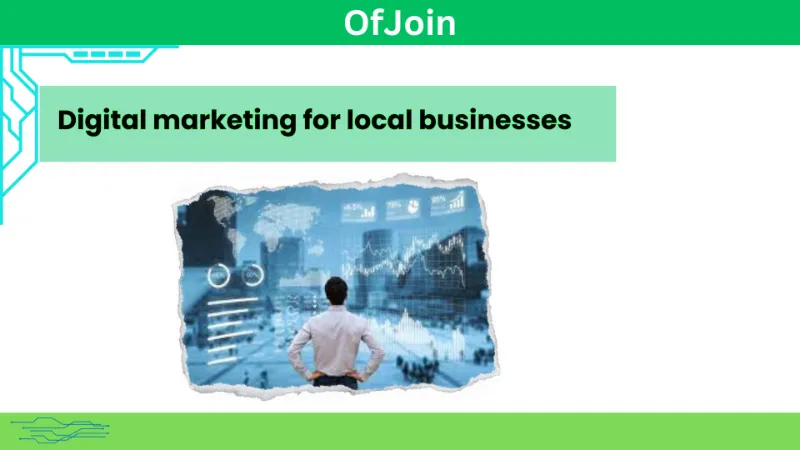Elevating Local Presence: The Power and Strategies of Digital Marketing for Local Businesses
Introduction:
In the age of digital connectivity, local businesses find themselves at the intersection of traditional community engagement and the expansive reach offered by online platforms. As consumers increasingly turn to the internet for information and services, the significance of digital marketing for local businesses has never been more pronounced. This article explores the transformative power of digital marketing, offering insights and strategies to empower local businesses in building a robust online presence and thriving in the digital landscape.
The Landscape of Local Business in the Digital Age:
1. Online Presence as the New Storefront:
In an era where the first point of contact between consumers and businesses often occurs online, a robust digital presence is akin to a well-maintained physical storefront. Websites, social media profiles, and online directories serve as the digital storefronts that introduce potential customers to local businesses.
2. Consumer Behavior and Local Searches:
The way consumers discover and choose local businesses has evolved. Local searches on search engines have become the norm, with users relying on platforms like Google My Business, Yelp, and social media to find information, read reviews, and make informed decisions about where to shop, dine, or seek services in their local communities.
The Power of Digital Marketing for Local Businesses:
1. Targeted Advertising:
Digital marketing allows local businesses to target their audience with unprecedented precision. Platforms like Facebook and Instagram enable businesses to create hyper-targeted ads based on demographics, interests, and location. This targeted approach ensures that marketing efforts reach the most relevant audience.
2. Search Engine Optimization (SEO):
Appearing in local search results is crucial for local businesses. Optimizing online content for search engines through local SEO practices ensures that businesses show up when potential customers are actively searching for products or services in their vicinity. This visibility enhances the chances of attracting local foot traffic or inquiries.
3. Social Media Engagement:
Social media platforms are invaluable tools for local businesses to engage with their community. Consistent and authentic social media presence fosters a sense of community, builds brand loyalty, and provides a platform for direct communication with customers. Social media advertising further amplifies reach and engagement.
4. Online Reviews and Reputation Management:
Online reviews have a significant impact on consumer decision-making. Managing online reviews on platforms like Yelp and Google My Business is essential for local businesses. Positive reviews contribute to a favorable online reputation, while addressing negative feedback demonstrates a commitment to customer satisfaction.
Strategies for Effective Digital Marketing:
1. Optimizing Google My Business:
Google My Business is a cornerstone for local businesses. Optimizing the business profile, including accurate contact information, business hours, and high-quality images, ensures visibility in local searches and on Google Maps.
2. Local Content Marketing:
Creating and sharing local-centric content establishes a local business as an authority in its community. This can include blog posts, articles, or videos that highlight community events, customer stories, and relevant local news.
3. Mobile Optimization:
With the majority of local searches occurring on mobile devices, ensuring that websites are mobile-friendly is non-negotiable. Mobile optimization enhances user experience and contributes to higher search rankings.
4. Email Marketing Campaigns:
Email marketing remains a powerful tool for local businesses to connect with their audience. Targeted email campaigns, promotions, and newsletters keep customers informed and engaged, fostering a sense of loyalty.
Conclusion:
In the dynamic landscape of digital marketing for local businesses, adaptation and innovation are key. The intersection of online and offline engagement requires a strategic and holistic approach to ensure a seamless and positive customer experience. By embracing the power of digital marketing, local businesses can not only survive but thrive in the digital age, connecting with their communities, attracting new customers, and solidifying their position as integral contributors to the local economy. As technology continues to advance, local businesses that leverage digital marketing effectively will find themselves not just surviving, but flourishing in the evolving marketplace.







